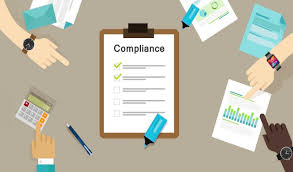There are a number of good billing systems for the small to mid-sized law firm. They all are capable of producing bills and statements in a variety of formats. But there is more to a billing system than the ability to produce bills. There is also a wealth of information sitting in your billing system which can help lawyers and legal administrators assess the financial welfare of the firm, and make sure that it is running efficiently and profitably.
So what can you get from your billing system besides the bills?
- WIP Reports – WIP means “work in process”; that is, work not yet billed out. What is sitting in your billing system that has not yet been billed? Are there surprises there? If your billing system can run an aged work-in-process report by client/matter – and most can – you may be very surprised to see unbilled time and expenses that are not current. If you see unbilled time and expenses older than 30 days, you need to investigate to see why they have not been billed. Disbursements can add up very quickly and should be billed as soon as possible. Too much time and expense sitting in WIP can lead to a cash flow problem.
- Aged Accounts Receivable Balance Reports – Now that you have sent out bills, who owes you how much, and how old are the receivables? In general, the older the receivables, the harder they are to collect. You will want to run this report right after you run the bulk of your billing, then again in mid-month to monitor your collections process. In a firm with several partners, it’s a good idea to run the report sorted by partner so each can follow up with his or her clients. You may also want to review your standard retainer letter to make sure that the payment policy is clearly spelled out.
- Daily Total of Billable Hours by Timekeeper – Run a report of hours worked by timekeeper to make sure that no days have been skipped. It is often the case that not all hours are entered on a timely basis. If an attorney is away at a deposition or on trial, that time may not be getting entered. Such a report should be run weekly, and also should be run right before the billing cycle begins, to be sure that all time is in the system before billing.
- Invoice Reports – How much did you bill last month? How much have you billed this year, and how does it compare to last year? An invoice report, especially when run on a comparative basis, will help you stay on top of your billing, which in turn will help the firm’s cash flow.
- Payments by Month – How much did you receive in payments from your clients this month, and this year to date? Again, running these reports on a monthly basis, and comparing them to the same time last year, lets you see how much cash is coming in to the practice. If there is a gap between the value of the hours worked and the payments coming in, then either hours are being left in WIP, or else there is a collections problem which needs your follow up.
- Flat Fee Analysis – How much did you bill for a flat fee matter as compared to the value of your time, calculated at your normal hourly rate? Such a report, run periodically, perhaps quarterly, can help you figure out whether your flat fees are reasonable given the hours you are investing. Such a report of course requires that you track the hours you work in the billing system, which we believe is always a good idea.
- Revenue by Practice Area – If your firm has several areas of practice, try running a payment report by practice area, hours worked by practice area, and accounts receivable report by practice area. You may be surprised to see where most of your revenue is coming from and how the trend is changing over time.
Most billing programs can produce all of these reports. The key is to set up a schedule for running them, then to make sure they are reviewed and acted upon, in time to head off productivity and collections issues, and to price your services appropriately in the future.
Give us a call if you would like to discuss how to squeeze more functionality from your present billing system, and make better use of the reports available to you to manage your firm more effectively.

Jack Schaller has been active in the field of law office technology since 1989, and has worked with a variety of commercial accounting, legal billing, practice management, and document management software products during his twenty plus years in the software consulting field. During his tenure as a software consultant he has garnered many sales and service awards for his work with legal software products. Jack is a frequent presenter at legal conferences and seminars, and is a regular contributor to TechnoLawyer and other technology publications.



